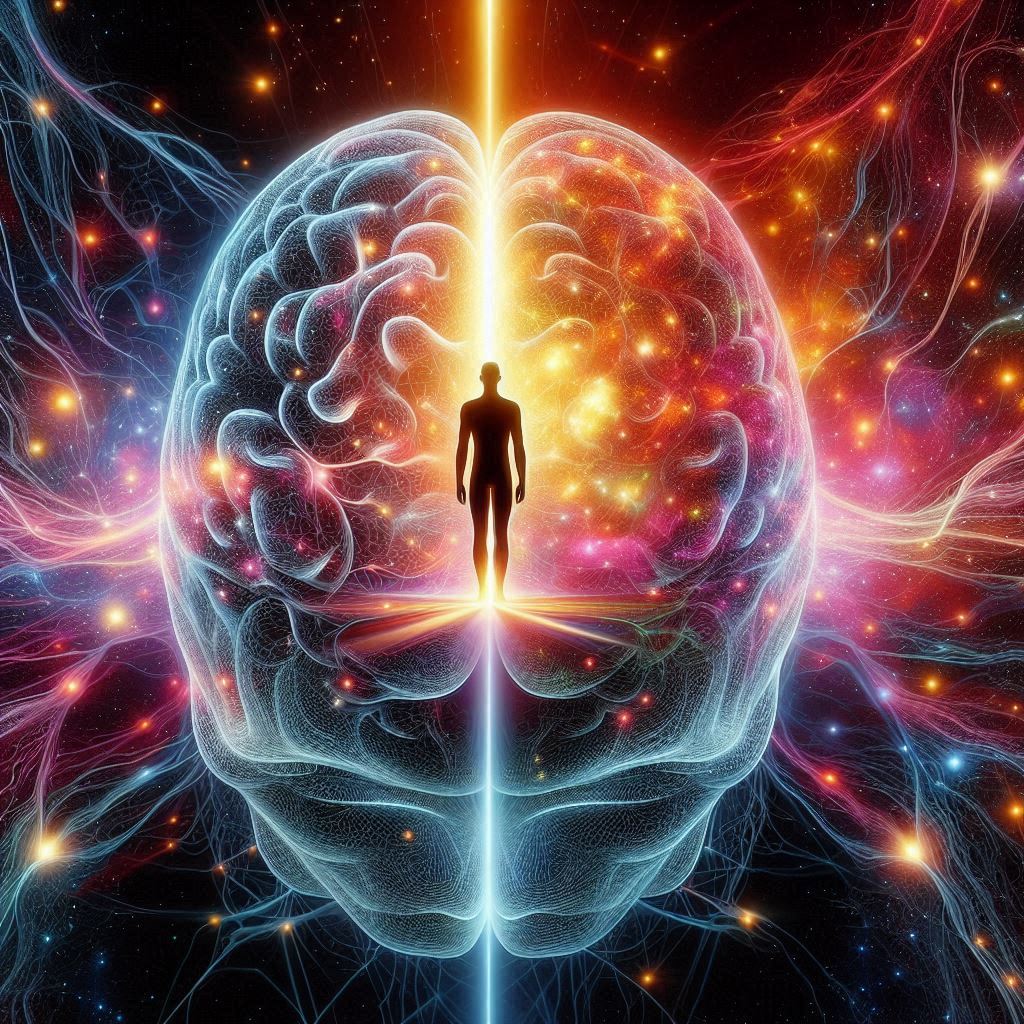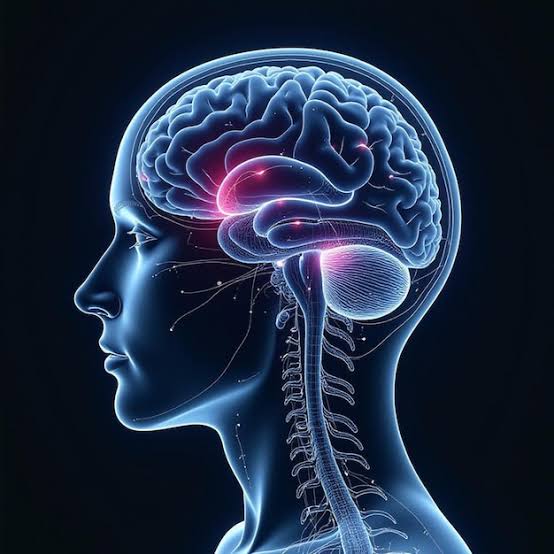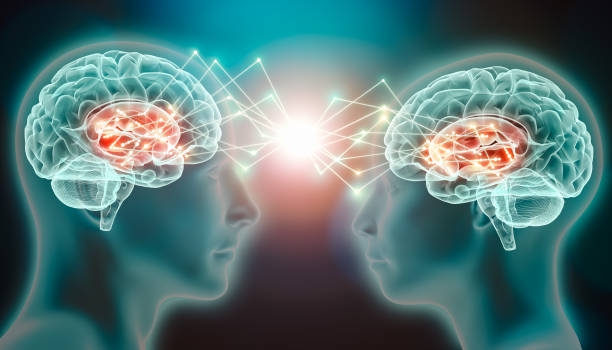For centuries, the question of whether human beings truly have free will has captivated philosophers, scientists, and theologians alike. Are our choices genuinely our own, or are they determined by forces beyond our conscious control—our biology, our environment, or even the physical laws of the universe? The debate touches the deepest aspects of human identity, morality, and meaning. Free will feels intuitively real: we seem to decide what to eat, whom to love, what career to pursue. Yet modern psychology and neuroscience increasingly suggest that much of what we call “choice” may be the result of unconscious processes that precede awareness.
The idea that free will might be an illusion challenges not only personal experience but also the foundations of ethics, law, and society. If our actions are determined by prior causes, can we still be held responsible for them? Can justice exist without moral responsibility? Science has not yet offered a final answer, but research in psychology and neuroscience has begun to illuminate the mechanisms behind decision-making, revealing a far more complex—and sometimes unsettling—picture of human freedom.
The Philosophical Foundations of Free Will
The concept of free will has its roots in ancient philosophy. Greek thinkers such as Aristotle viewed human beings as rational agents capable of deliberation and choice. In Christian theology, free will became central to moral accountability: individuals were believed to have the power to choose between good and evil, and thus could be judged for their actions.
Philosophers have long debated whether free will can coexist with determinism—the idea that every event, including human decisions, is caused by prior events in accordance with natural laws. The opposing schools of thought are often categorized as compatibilism and incompatibilism. Compatibilists, such as David Hume and later Daniel Dennett, argue that free will is compatible with determinism because freedom consists not in the absence of causation but in acting according to one’s own desires and reasoning, without external coercion. Incompatibilists, including Immanuel Kant and many modern thinkers, contend that if our actions are determined by prior causes, then genuine free will is impossible.
In the 20th century, this debate expanded beyond philosophy into psychology and neuroscience. Scientists began to ask whether conscious thought actually causes our actions or merely observes decisions already made by the brain. What was once a purely metaphysical question became an empirical one: could free will be measured, tested, and perhaps even falsified?
The Birth of Experimental Free Will Studies
The first major attempt to scientifically investigate free will came in the 1980s through the work of neuroscientist Benjamin Libet. His now-famous experiments measured the timing of electrical brain activity during voluntary movements. Libet asked participants to flex their wrists at a moment of their own choosing while watching a rapidly rotating clock. He recorded two key variables: the “readiness potential” (a slow buildup of neural activity in the motor cortex preceding movement) and the moment participants reported becoming consciously aware of their decision to act.
The results were striking. The readiness potential appeared several hundred milliseconds before participants reported a conscious intention to move. In other words, the brain seemed to begin preparing an action before the person consciously decided to perform it. To many, this suggested that conscious will might not initiate action but instead follows it—a post hoc rationalization of neural processes already in motion.
Libet’s findings provoked enormous debate. Some interpreted them as evidence that free will is an illusion, that the brain “decides” before the mind knows. Others argued that Libet’s task—pressing a button—was too trivial to represent real-world decision-making. Libet himself proposed a middle ground: while we may not consciously initiate actions, we might still possess a “veto power,” the ability to stop an unconscious impulse before it becomes behavior. He called this “free won’t.”
Beyond Libet: New Insights and Challenges
Subsequent studies have extended and refined Libet’s work, often using more advanced brain-imaging techniques such as functional MRI and EEG. In 2008, neuroscientists Chun Siong Soon and John-Dylan Haynes reported that they could predict a participant’s decision to press a button with either the left or right hand up to seven seconds before the person became consciously aware of deciding. Activity in certain brain regions, such as the prefrontal and parietal cortices, appeared to encode information about the upcoming choice long before conscious intention arose.
Such results deepened the challenge to traditional notions of free will. If brain activity can reveal our choices before we consciously “decide,” then our sense of agency might be more a story we tell ourselves than a genuine cause of behavior. Yet even these findings remain controversial. The predictive accuracy of such studies is far from perfect, and the choices tested are usually arbitrary and meaningless. Real-life decisions—such as whether to change careers, end a relationship, or confront injustice—are far more complex, involving values, emotions, and reasoning over time.
Moreover, the brain does not operate as a simple hierarchy in which unconscious processes dictate outcomes. Conscious thought can influence neural activity, shaping long-term goals and self-control. The very regions that appear to predict decisions in these experiments—the prefrontal cortex and parietal cortex—are also involved in planning, intention, and moral reasoning. Thus, while unconscious processes clearly play a role, the relationship between consciousness and action remains dynamic rather than one-directional.
The Unconscious Mind and Automaticity
Psychological research has long demonstrated that much of human behavior is guided by unconscious processes. Our brains constantly perform tasks below awareness: regulating breathing, scanning for threats, interpreting social cues, and forming intuitive judgments. This efficiency allows us to function in a complex world without being paralyzed by constant deliberation.
However, unconscious influence extends even to decisions we believe are consciously made. Studies in cognitive psychology show that priming—subtle cues in the environment—can shape our behavior without awareness. For example, exposure to words related to aging can make people walk more slowly; reminders of money can make individuals act more self-sufficient and less cooperative.
Similarly, our choices are influenced by emotions, habits, and biases that operate automatically. When we select a meal, buy a product, or vote for a candidate, our preferences often reflect prior experiences, mood states, or social influences more than deliberate reasoning. This does not mean we lack agency altogether, but it suggests that much of what we call “choice” arises from factors we do not fully control or even recognize.
The Neuroscience of Decision-Making
To understand free will, we must first understand how the brain makes decisions. Decision-making is not localized to a single “free will center” but involves a distributed network of regions. The prefrontal cortex integrates information about goals, values, and potential outcomes; the basal ganglia contribute to selecting actions; and the anterior cingulate cortex monitors conflict between competing choices.
These processes unfold through complex feedback loops, balancing internal drives and external constraints. Importantly, decision-making often occurs through competition between neural representations. In a simplified sense, different options “compete” for dominance until one reaches a threshold that triggers action. The readiness potential observed in Libet’s experiments may reflect this accumulation of activity rather than a predetermined outcome.
Neuroscientific models, such as the “drift diffusion model,” describe decisions as gradual accumulations of evidence toward a threshold. Conscious awareness may emerge when this accumulation reaches a certain level, allowing the brain to integrate unconscious processing into a coherent experience of intention. Thus, instead of seeing consciousness as a mere spectator, some neuroscientists view it as an integrative mechanism that helps coordinate behavior over time.
The Role of the Conscious Mind
While unconscious processes initiate and influence much of our behavior, consciousness plays a vital regulatory role. It allows humans to reflect, plan, and inhibit impulses. Conscious deliberation enables long-term goal pursuit—something largely absent in simpler organisms. We can imagine future scenarios, evaluate moral consequences, and align our actions with abstract values such as justice or compassion.
From this perspective, free will may not reside in the moment-to-moment generation of motor actions but in the broader capacity for self-reflection and intentional control. A person may not consciously decide every step they take, but they can consciously choose to train for a marathon, adopt a diet, or change a career. Such sustained goals require awareness, reasoning, and self-regulation.
Moreover, consciousness can reshape unconscious processes through learning and habit formation. Practices like meditation, cognitive-behavioral therapy, or mindfulness can modify automatic responses, demonstrating that awareness can influence even deeply ingrained neural patterns. In this way, conscious intention and unconscious mechanism are not opposites but parts of a continuous system.
Free Will, Determinism, and the Brain
Determinism in physics states that every event follows inevitably from prior causes, governed by natural laws. Applied to the brain, this suggests that every thought or decision results from prior neural states. Yet modern science complicates this view. Quantum mechanics introduces a degree of indeterminacy at the microscopic level, and biological systems exhibit nonlinear dynamics that make prediction difficult.
Even if the brain operates according to deterministic principles, determinism does not necessarily negate meaningful freedom. Compatibilist philosophers argue that what matters is not whether actions have causes but whether those causes arise from the individual’s internal states—desires, beliefs, and reasoning—rather than external coercion. From this view, a person acts freely when they act in accordance with their own motivations, even if those motivations have antecedent causes.
Neuroscience, however, challenges the simplicity of this model. If unconscious processes determine desires and beliefs, is the resulting action still “ours”? Are we free if our motivations themselves are shaped by genetics, upbringing, and culture? This is the heart of the modern free will debate: not whether we can act without causes, but whether we can be the true authors of those causes.
The Illusion of Conscious Control
Some researchers argue that free will is not just constrained but fundamentally illusory. Psychologist Daniel Wegner famously proposed that the feeling of conscious will arises after the brain initiates action. According to his “illusion of conscious will” hypothesis, consciousness does not cause behavior but interprets it, creating a narrative of agency.
Experiments support this idea in surprising ways. In some studies, electrical stimulation of certain brain regions causes subjects to perform actions—such as moving a hand or smiling—yet they report having done so intentionally. Conversely, under hypnosis or automatic writing, individuals can perform complex actions while believing they have no control over them. These findings suggest that the sense of agency can be manipulated independently of actual motor control.
Wegner likened conscious will to the relationship between a thunderclap and lightning: both occur together, but one does not cause the other. Our awareness of intention may simply accompany the underlying neural processes that generate action, creating the illusion of conscious causation.
The Psychological Importance of Believing in Free Will
Regardless of whether free will truly exists, belief in it appears to have psychological consequences. Experiments show that people who are led to disbelieve in free will—by reading essays or statements claiming that human behavior is determined—are more likely to cheat, lie, or behave aggressively. They also tend to show reduced effort and motivation.
Conversely, belief in free will correlates with greater self-control, ethical behavior, and social cooperation. This suggests that even if free will is an illusion, it may be a useful one—an adaptive belief that promotes moral responsibility and social cohesion. The perception of agency motivates people to take ownership of their actions and strive for improvement.
Some scholars argue that society requires a pragmatic notion of free will to maintain order. Legal systems, for example, depend on the assumption that individuals can choose to obey or break the law. Without that assumption, moral responsibility and justice become difficult to justify. Thus, the illusion of free will may serve an essential social function, even if it does not reflect ultimate metaphysical truth.
Consciousness, Self, and the Construction of Choice
The sense of self—our inner narrative of “I” that experiences the world and makes choices—is itself a construct generated by the brain. Neuroscience suggests that this self is not a single entity but a dynamic process that integrates perception, memory, emotion, and intention. The brain continually generates a model of the world and of the organism within it, predicting sensory input and adjusting behavior accordingly.
From this predictive perspective, decisions arise from the brain’s attempt to minimize surprise or error between expected and actual outcomes. Conscious awareness emerges as part of this process, providing a coherent narrative that links cause and effect across time. Free will, in this sense, may be the subjective experience of this predictive control—a phenomenological byproduct of complex neural computations.
Yet the fact that our sense of agency is constructed does not make it meaningless. Just as the experience of color or emotion arises from neural processes yet remains real to us, so too does the experience of choosing. The subjective feeling of freedom may reflect an evolved mechanism that helps humans plan, coordinate, and take responsibility for their actions in social contexts.
Moral Responsibility in a Determined World
If neuroscience and psychology undermine absolute free will, what becomes of moral responsibility? Many philosophers and scientists advocate a redefinition rather than an abandonment of responsibility. They suggest that holding people accountable remains justified because it shapes future behavior and reinforces social norms. Responsibility, in this pragmatic sense, is less about ultimate causation and more about influence and consequence.
Neuroscientist Sam Harris argues that recognizing the absence of free will can foster compassion rather than nihilism. If individuals are shaped by causes beyond their control—genes, environment, and chance—then hatred and retribution become less rational, replaced by understanding and rehabilitation. The justice system, under this view, should focus less on punishment and more on prevention, education, and treatment.
However, critics warn that such a view risks eroding personal accountability. If criminals, abusers, or corrupt leaders can claim that their actions were predetermined, society may struggle to uphold moral standards. Thus, even if free will is not absolute, maintaining a functional concept of responsibility may be essential for ethical and social stability.
The Role of Complexity and Emergence
Some scientists propose that free will can be understood as an emergent property of complex systems. In this view, freedom arises not from breaking the laws of physics but from the brain’s ability to generate flexible, adaptive behavior. Just as weather patterns emerge from physical interactions but cannot be reduced to the movement of individual air molecules, human choice may emerge from neural dynamics without being fully predictable.
Emergent free will suggests that higher levels of organization—such as consciousness, reasoning, and self-reflection—introduce new causal powers not reducible to their components. While neurons follow physical laws, the patterns of their interactions create the possibility of self-directed behavior. From this perspective, free will is not an illusion but a higher-order phenomenon, real at the level of persons even if determined at the level of particles.
The Future of the Free Will Debate
The debate over free will continues to evolve as science advances. Emerging fields such as neuroethics, artificial intelligence, and cognitive neuroscience are pushing the boundaries of what it means to choose and to act. Brain-computer interfaces can now translate neural signals into movement, blurring the line between voluntary and mechanical action. Artificial intelligence systems make autonomous decisions based on algorithms, prompting comparisons with human agency.
As neuroscience becomes increasingly capable of decoding intentions, society will face profound ethical questions. If brain scans can predict criminal tendencies or future behavior, how should that information be used? Should we hold people accountable for actions that their brains are statistically likely to produce? These challenges will force humanity to reconsider the meaning of freedom, responsibility, and identity in a world where the workings of the mind are ever more transparent.
Reconciling Science and Subjective Experience
While neuroscience may reveal that decisions are preceded by unconscious brain activity, this does not necessarily invalidate the reality of conscious experience. The subjective sense of agency is a lived phenomenon—a part of what it means to be human. It may coexist with determinism, just as the experience of color coexists with the physics of light.
Some thinkers propose a layered model of causation: at the physical level, events are determined by natural laws; at the psychological level, humans experience deliberation, intention, and choice. Both descriptions are valid within their respective frameworks. Just as temperature is an emergent property of molecular motion, free will may be an emergent property of consciousness.
Conclusion: Between Illusion and Reality
The question of free will remains unresolved, straddling the borders of philosophy, psychology, and neuroscience. Scientific evidence increasingly shows that unconscious processes shape our thoughts and actions long before awareness arises. Yet this does not necessarily mean that freedom is an illusion in any practical sense. Consciousness still allows reflection, planning, and moral reasoning—abilities that distinguish human agency from mere mechanical causation.
Perhaps the truth lies between determinism and freedom. We may not be the ultimate originators of our actions, but we are participants in a continuous dialogue between biology, experience, and reason. Our choices emerge from a complex interplay of causes, yet within that web, we can still cultivate awareness, shape habits, and strive toward values.
Free will, then, may not be absolute autonomy but a kind of dynamic self-guidance—the capacity to reflect upon our impulses, to understand the forces that shape us, and to act in ways that align with our deepest intentions. Whether this counts as true freedom or a sophisticated illusion may never be fully answered, but the search itself reveals something profoundly human: our desire to understand ourselves, to find meaning in our actions, and to claim ownership of the lives we live.






